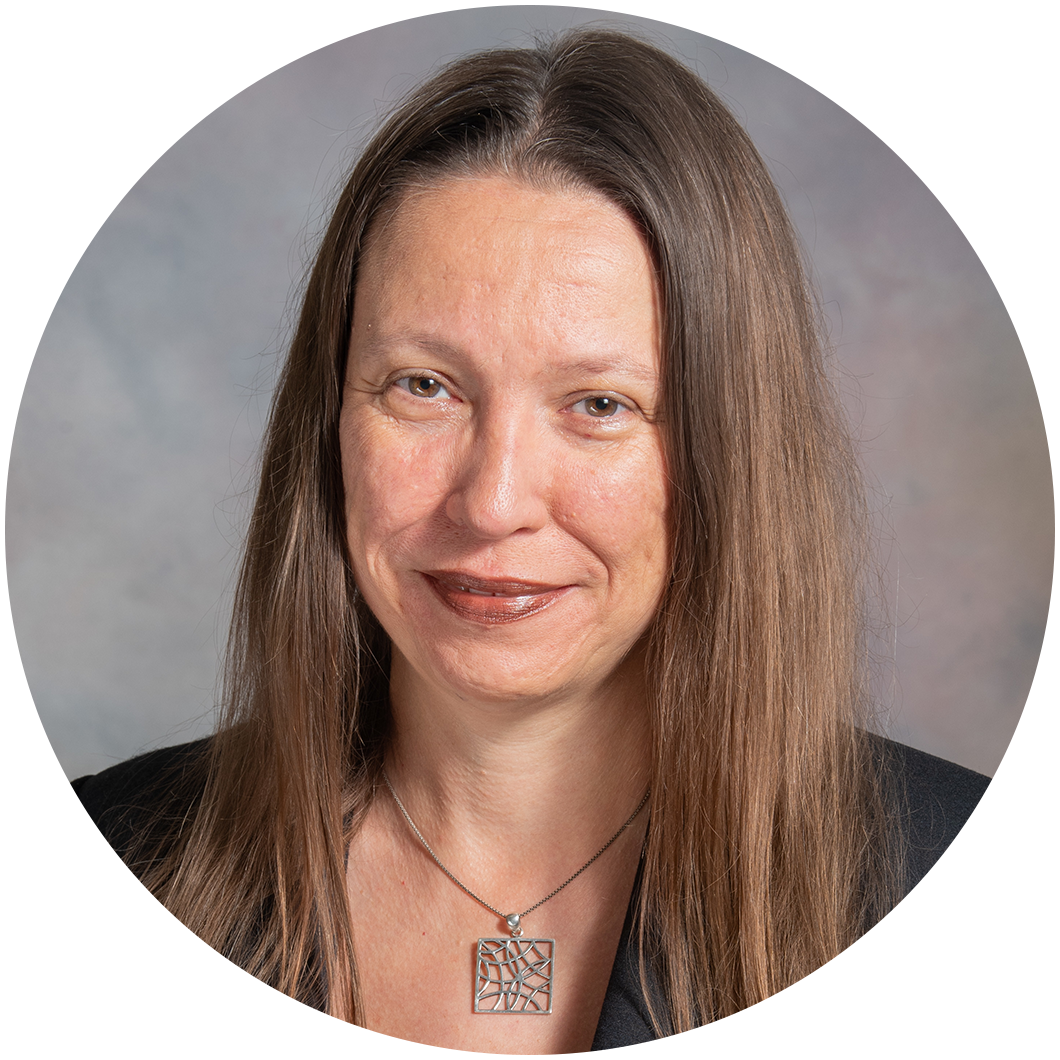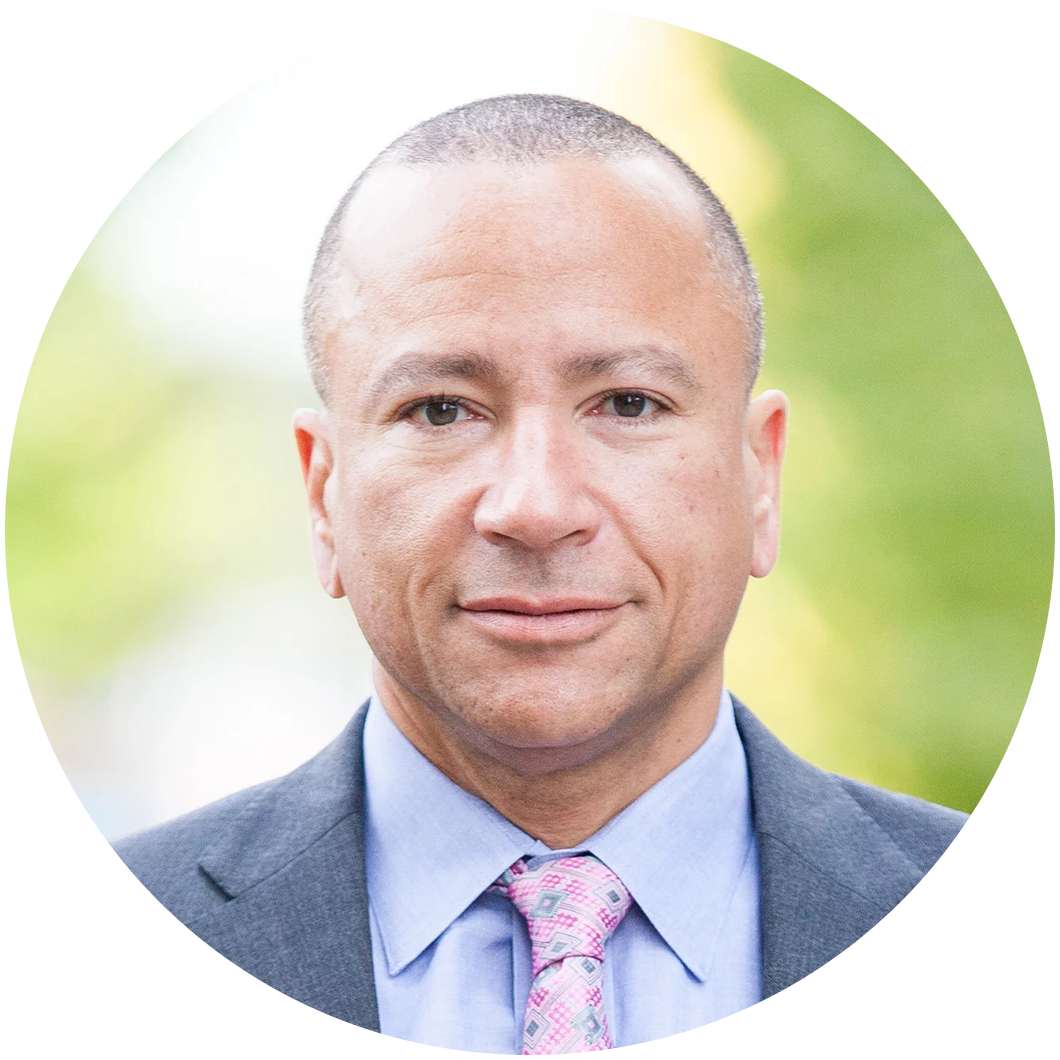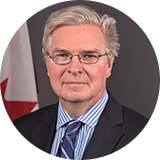
Slater Family Canada-US Policy Series
Friday, May 10, 2024 | 8:30 a.m. - 7:00 pm | InterContinental Hotel
This one-day conference examined ways in which Canada and the United States can work together in responding to the challenges and opportunities associated with China’s rise on the world stage. During a period of heightened international complexity and instability, including renewed geostrategic rivalry, Canada-US cooperation in managing their respective relationships with China will be more important than ever. This conference is the second in the Slater Family Canada-US Policy Series.
The Conference will open at 8:30 am with breakfast and registration. Programming will begin at 9:00 am.
AGENDA
Plenary 1: Regional Security
This session focused on China as a security threat in the Indo-Pacific region, and how Canada, the US and other western partners can cooperate in response. It will cover a wide range of security-related topics, including military capabilities and operations, intelligence, cyber, technology, training, and capacity-building, and regional partnerships.
See the panelists
 Vice-Admiral Angus Topshee, Commander of the Royal Canadian Navy
Vice-Admiral Angus Topshee, Commander of the Royal Canadian Navy
Vice-Admiral (VAdm) Angus Topshee is the 38th Commander of the Royal Canadian Navy (RCN). His diverse academic background includes military and civilian institutions on three continents. He has deployed in ships around the world and has accumulated countless sea stories involving pirates, sharks, terrorists, volcanoes, whales, fires, and all the other things which make life at sea a true adventure. The highlight of his time at sea was his far too brief command of Her Majesty’s Canadian Ship (HMCS) Algonquin in 2009-2010 and, a close second, his three years in command of Canada’s Pacific Fleet from 2018 to 2021.
 Janice Gross Stein, Belzberg Professor of Conflict Management, Department of Political Science, University of Toronto
Janice Gross Stein, Belzberg Professor of Conflict Management, Department of Political Science, University of Toronto
Janice Gross Stein is the Belzberg Professor of Conflict Management in the Department of Political Science and the Founding Director of the Munk School of Global Affairs & Public Policy at the University of Toronto. She is a Fellow of the Royal Society of Canada and a member of the Order of Canada and the Order of Ontario. She was the Massey Lecturer in 2001 and a Trudeau Fellow. She was awarded the Molson Prize by the Canada Council for an outstanding contribution by a social scientist to public debate and has received Honorary Doctorates of Laws from universities in Canada and abroad. She is also an Honorary Foreign Member of the American Academy of Arts and Sciences and a Senior Fellow of the Kissinger Center at SAIS at Johns Hopkins University. Her current research focuses on technology and public policy in the context of great power competition. Last year, she co-chaired the National Advisory Committee on Canada’s Indo-Pacific Strategy for the Minister of Global Affairs.
 David Finkelstein, Vice President and Director, China & Indo-Pacific Security Affairs Division at CNA
David Finkelstein, Vice President and Director, China & Indo-Pacific Security Affairs Division at CNA
David M. Finkelstein has been engaged in Asian security affairs for over four decades. A retired US Army China specialist, he currently leads the China & Indo-Pacific Security Affairs Division at CNA, in Arlington, Virginia. He is a graduate of West Point, holds a PhD in Chinese and Japanese history from Princeton University, and studied Mandarin at Nankai University in the PRC.
 Travis Whitworth, Senior Director of Global Intelligence, Strider Technologies
Travis Whitworth, Senior Director of Global Intelligence, Strider Technologies
W. Travis Whitworth is Senior Director of Global Intellignece at Strider Technologies. Prior to joining Strider, Mr. Whitworth had a 22-year career at the Central Intelligence Agency where he was a leading expert on East Asia security issues and served multiple tours in CIA Stations in East and Southeast Asia. Mr. Whitworth also served as a US Marine with multiple deployments to East and Southwest Asia. He holds a BA in Geography from The George Washington University and a MA in National Security and Strategic Studies from the US Naval War College.
 Shihoko Goto (moderator), Director, Indo-Pacific Program, Wilson Center
Shihoko Goto (moderator), Director, Indo-Pacific Program, Wilson Center
Shihoko Goto is director of the Indo-Pacific Program at the Wilson Center. She specializes in trade and economic interests across the Indo-Pacific, and is also focused on geopolitical developments in Japan, South Korea, and Taiwan. She is also a columnist for The Diplomat magazine and contributing editor to The Globalist. She is currently an executive board member of the Japan-America Society of Washington DC, and a member of the Global Taiwan Institute’s US-Taiwan Task Force. Prior to joining the Wilson Center, she was a financial journalist covering the international political economy with a focus on Asian markets. As a correspondent for Dow Jones News Service and United Press International based in Tokyo and Washington, she has reported extensively on policies impacting the global financial system as well as international trade. She was also formerly a donor country relations officer at the World Bank. Read her full bio.
Plenary 2: Security at Home
This session focused on Chinese security threats closer to North America. It will examine Chinese hostile activities against Canada and the United States, including foreign interference, espionage, economic-based threats, disinformation, and cyber-attacks. Panelists will explore how Canada and the United States can establish a common front against these activities.
See the panelists
 Thomas Juneau, Associate Professor, School of Public and International Affairs, University of Ottawa
Thomas Juneau, Associate Professor, School of Public and International Affairs, University of Ottawa
Thomas Juneau is an associate professor at the University of Ottawa's Graduate School of Public and International Affairs. His research focuses on the Middle East (mostly on Iran and Yemen), the role of intelligence in national security and foreign policy-making, and Canadian foreign and defence policy. From 2003 until 2014, he worked with Canada’s Department of National Defence, mostly as a policy analyst covering the Middle East. He is also a non-resident fellow with the Sanaa Center for Strategic Studies. He tweets @thomasjuneau.
Nic ole Giles, Senior Assistant Deputy Minister and Deputy Director, Policy and Strategic Partnerships, Canadian Security Intelligence Service
ole Giles, Senior Assistant Deputy Minister and Deputy Director, Policy and Strategic Partnerships, Canadian Security Intelligence Service
Nicole Giles was appointed to the position of Senior Assistant Deputy Minister and Deputy Director of Policy and Partnerships at the Canadian Security Intelligence Service (CSIS) in October 2022. Her portfolio includes strategic policy, public and foreign relations, external review and compliance, litigation and disclosure, employee communication and engagement, and academic outreach and stakeholder engagement. Dr. Giles is a seasoned executive, joining CSIS from Immigration, Refugees and Citizenship Canada (IRCC) where she held the position of Assistant Deputy Minister, Operations Sector. While there she led the coordination of major initiatives, such as the government’s immigration response to the invasion of Ukraine and Taliban take-over of Afghanistan.
 Craig Singleton, Senior Director, China Program, Foundation for Defense of Democracies
Craig Singleton, Senior Director, China Program, Foundation for Defense of Democracies
Craig Singleton, a seasoned former U.S. diplomat, brings extensive expertise in Chinese foreign and defense policy, alongside a profound understanding of China's "United Front" system. In his capacity as a senior fellow and Senior Director of the non-partisan Foundation for Defense of Democracies' China Program, Craig's research and commentary have been featured in The New York Times, Foreign Policy, The Wall Street Journal, The Washington Post, and other major media outlets. Craig received his bachelor’s degree in political science from the University of Florida and his master’s degree in international policy from the Bush School of Government and Public Service at Texas A&M University.
 Robert Daly, Director, Kissinger Institute on China and the United States
Robert Daly, Director, Kissinger Institute on China and the United States
Robert Daly has compiled an unusually diverse portfolio of high-level work: He has served as a US diplomat in Beijing; as an interpreter for Chinese and US leaders, including President Carter and Secretary of State Kissinger; as head of China programs at Johns Hopkins, Syracuse, and the University of Maryland; and as a producer of Chinese-language versions of Sesame Street. Recognized East and West as a leading authority on Sino-US relations, he has testified before Congress, lectured widely in both countries, and regularly offers analysis for top media outlets.
 Wesley Wark (moderator), Senior Fellow, Centre for International Governance Innovation
Wesley Wark (moderator), Senior Fellow, Centre for International Governance Innovation
Wesley Wark is a senior Fellow at the Centre for International Governance Innovation, in Waterloo, where he co-directed a major project on Canadian National Security Strategy. He is co-author of the CIGI special report published in 2021, “Reimagining a Canadian National Security Strategy.” Professor Wark served as a member of the Prime Minister’s Advisory Council on National Security for two terms (2005-2009) and on the CBSA President’s advisory committee (2006-2010). He was an advisor to the Minister of Public Safety on national security policy and legislation between 2015 and 2019. He spent most of his academic career at the University of Toronto, where he taught from 1988 to 2013. Prior to joining the University of Toronto, he taught at the London School of Economics, McGill University and the University of Calgary. He holds a Ph.D. from the London School of Economics and an M.A. from Cambridge University. He currently teaches courses on intelligence and security and on national security and intelligence review offered through the Balsillie Executive Institute. He is a frequent contributor to the Canadian media on national security issues. He writes a newsletter on national security and intelligence issues, available at: wesleywark.substack.com
Lunchtime Address: "A China We Can Talk To?"
 David Ownby recently retired from the History Department of the Université de Montréal, and is now an Associate at the Max Planck Institute for Social Anthropology in Halle, Germany.
David Ownby recently retired from the History Department of the Université de Montréal, and is now an Associate at the Max Planck Institute for Social Anthropology in Halle, Germany.
Plenary 3: Human Rights, Democracy, and International Institutions
This session looked at ways in which Canada and the United States can together address China’s human rights record. It will focus on the Five Poisons (the Uyghurs, Tibet, Taiwan, Falun Gong, and democracy) but also touch on China’s role in international institutions and aggressive tactics such as hostage diplomacy.
See the panelists
 Jennie Chen, Executive Director, Greater China Policy and Coordination Division, Global Affairs Canada
Jennie Chen, Executive Director, Greater China Policy and Coordination Division, Global Affairs Canada
Jennie Chen has been the Executive Director for the Greater China Policy and Coordination Division at Global Affairs Canada since August 2021. Having started at Global Affairs Canada in 2003, her past experience includes postings to New York, Kandahar, Washington DC, and twice in Beijing, including as the Head of the Political Section between 2014 and 2017. She has also held two Director-level positions at Environment and Climate Change Canada primarily working on international affairs. Just prior to joining the China team, Jennie was the Director of the Northeast Asia and Oceania Division. She has a Masters of Arts (East Asian Studies) from McGill University and a Bachelor of Arts (International Relations and Asian Studies) from the University of British Columbia. She was born and raised in Vancouver.
 Emile Dirks, Research Associate and Lecturer, Citizen Lab, Munk School of Global Affairs and Public Policy, University of Toronto
Emile Dirks, Research Associate and Lecturer, Citizen Lab, Munk School of Global Affairs and Public Policy, University of Toronto
Dr. Emile Dirks is a Research Associate and lecturer at the Citizen Lab at the Munk School of Global Affairs & Public Policy, University of Toronto, where he explores policing, transnational repression, surveillance, and politics in contemporary China. His research has appeared in The New York Times, The Economist, The Intercept, and Foreign Policy, among other publications, and he has testified twice before the Congressional-Executive Commission on China. Previously, he has served as a fellow at the Mercator Institute for China Studies and as a research associate at the London School of Economics.
 James A. Millward, Professor of Inter-societal History, Walsh School of Foreign Service, Georgetown University
James A. Millward, Professor of Inter-societal History, Walsh School of Foreign Service, Georgetown University
James Millward is professor of history at Georgetown University, School of Foreign Service. He works on China, Inner Asia and the Silk Road. He has written in particular about Xinjiang's history and contemporary crises. He is the author of Eurasian Crossroads: a History of Xinjiang (2020) and numerous articles and essays, including in the New York Times, the Washington Post, The Guardian, The New York Review of Books, Foreign Affairs, Foreign Policy, and other media. Twitter: @JimMillward
 Dawn Murphy, Associate Professor of National Security Strategy, National War College, National Defense University
Dawn Murphy, Associate Professor of National Security Strategy, National War College, National Defense University
Dr. Dawn Murphy is Associate Professor of National Security Strategy, National War College (NWC), at the National Defense University (NDU) in Washington, DC. Her research analyzes China’s interests and behavior as a rising global power towards the existing international order. She is the author of China’s Rise in the Global South: The Middle East, Africa, and Beijing’s Alternative World Order (Stanford University Press, 2022) https://www.sup.org/books/title/?id=33516. Murphy holds a B.S. in Industrial and Labor Relations from Cornell University, a Master of International Affairs from Columbia University’s School of International and Public Affairs, and a Ph.D. in Political Science from George Washington University. Dr. Murphy’s previous academic appointments include Associate Professor of International Security Studies at the US Air War College, Visiting Assistant Professor of Political Science at George Washington University, and Postdoctoral Research Fellow with the Princeton (Columbia)-Harvard China and the World Program at Princeton University.

Jennifer Welsh (moderator), Canada 150 Research Chair in the Global Governance and Security; Director of the Centre for International Peace and Security Studies, McGill University
Co-founder of the Oxford Institute for Ethics, Law & Armed Conflict
Former special advisor to UN Secretary-General Ban Ki-Moon on the responsibility to protect
Plenary 4: Trade and Commerce
This session looked at the role of trade and commerce in the ongoing rivalry between the United States and China, including such issues as trade protectionist measures, sanctions, and structures and agreements. The extent to which Canada and the US can establish common economic strategies against China will be the focus.
See the panelists
 Guy Saint-Jacques, Consultant, Speaker, and Administrator
Guy Saint-Jacques, Consultant, Speaker, and Administrator
Guy Saint-Jacques provides strategic advice on China and comments in the media and in conferences on developments related to China and on international climate negotiations. He sits on the Board of the Foundation of the Montreal Clinical Research Institute and that of the Canadian Ditchley Foundation. He is a Fellow of the China Institute of the University of Alberta, of the Institute of International Studies of Montreal and of the C.D. Howe Institute. In addition, he is the Honorary Chairman of the China Policy Centre in Ottawa.
 Dinny McMahon, Head of China Markets Research, Trivium China
Dinny McMahon, Head of China Markets Research, Trivium China
Dinny McMahon is Head of China Markets research at Trivium China. He has spent almost 20 years working on issues relating to China’s financial system and is the author of ‘China’s Great Wall of Debt – Shadow Banks, Ghost Cities, Massive Loans, and the End of the Chinese Miracle,’ a bottom-up look at the mechanics of China’s economy. Dinny started his career working as a financial journalist in China, spending six years in Beijing as the Wall Street Journal’s banking and finance correspondent, and four in Shanghai with Dow Jones Newswires. After moving to the US, he was a fellow at the Woodrow Wilson Center for International Scholars, then MacroPolo, the Paulson Institutes think tank, where he researched issues relating to China’s financial stability. He is also a co-author of “China's Quest for Self-Reliance: How Beijing Plans to Decouple from the Dollar-Based Global Trading and Financial System,” a report for the Wilson Center on China’s efforts to internationalize the yuan.
 Anna Ashton, Founder, Ashton Analytics
Anna Ashton, Founder, Ashton Analytics
Anna Ashton provides custom analysis and risk assessments for businesses and stakeholders whose interests intersect with China geopolitics and policy. Prior to founding Ashton Analytics in 2024, Anna served as the interim practice head for the China research team at Eurasia Group, a geopolitical risk consulting firm. In recent years she was also a senior fellow at the Asia Society Policy Institute and vice president of government affairs for the US China Business Council, where she lobbied the US government and represented the Council in engagements with the policy community, the press, and the public. Anna began her career as a China intelligence officer for the Department of Defense, and later worked for her home state of Arkansas to recruit Asian foreign direct investment. She also spent several years working on US-China economic and commercial issues for the US Chamber of Commerce and the US-China Economic and Security Review Commission, an advisory body for the US Congress. Anna holds a JD from Georgetown Law, an MA in East Asian Languages and Civilizations from the University of Colorado at Boulder, and a BA in Chinese Studies from Wellesley College.
 Carlo Dade, Director, Trade and Trade Infrastructure, Canada West Foundation
Carlo Dade, Director, Trade and Trade Infrastructure, Canada West Foundation
Carlo Dade is one of the country’s leading voices on defending and advancing western Canadian trade interests in Canada and abroad. He leads work on development of a national trade infrastructure plan and renewal of the nation’s trade corridors. His research and advocacy are playing a critical role in the achieving better trade agreements and drawing attention to the often-neglected importance of the assets and systems critical to moving products to markets. He has a reputation for developing creative solutions to some of the major challenges facing Canadian exporters and defending Canadian interests in trade with China and the U.S. Read his bio here.
 Graham Shantz (moderator), President, Canada China Business Council
Graham Shantz (moderator), President, Canada China Business Council
Graham served for over 25 years in Canada’s public service providing advice to Canadian governments, mainly on management of Canada’s relations with Asia. He has lived and worked for over 12 years in Asia, half of that in China. In Ottawa, Graham has worked in senior management positions in Global Affairs Canada, the Department of Finance and the Privy Council Office. In 2000-2001 he served as Canada’s lead negotiator for Foreign Investment Protection Agreements (FIPAs) and in 1996-1997 served as deputy chief negotiator for the Canadian team during China’s WTO accession talks. Over the past decades, Graham has been involved in numerous major bilateral visits between Canadian and Chinese leaders.
Plenary 5: Opportunities for Cooperation with China
This session explored strategic areas in which Canada and the United States may be able to cooperate with China, including climate change, pandemic response, people-to-people contacts and opioids.
See the panelists
 Paul Evans, Professor Emeritus, School of Public Policy and Global Affairs, University of British Columbia
Paul Evans, Professor Emeritus, School of Public Policy and Global Affairs, University of British Columbia
Paul Evans retired from teaching in July 2023 and is Professor Emeritus in the School of Public Policy and Global Affairs at the University of British Columbia. In addition to his academic appointments over four decades he served for three years as the Co-CEO of the Asia Pacific foundation of Canada and has been active in many track-two dialogues, several of them involving partners in the PRC. His books include a biography of John Fairbank, a lexicon of Asia Pacific security discourse, and two on Canada-China relations. His recent writings and commentary have focused on Canadian universities and China in the context of techno-nationalism and the shifting roles of Middle Powers in an Indo-Pacific era.
 Yanzhong Huang, Senior Fellow for Global Health, Council on Foreign Relations; Professor, Professor, School of Diplomacy and International Relations, Seton Hall University
Yanzhong Huang, Senior Fellow for Global Health, Council on Foreign Relations; Professor, Professor, School of Diplomacy and International Relations, Seton Hall University
Yanzhong Huang is a senior fellow for global health at the Council on Foreign Relations, and a professor at Seton Hall University’s School of Diplomacy and International Relations. He is the author of Governing Health in Contemporary China (2013), Toxic Politics: China’s Environmental Health Crisis and Its Challenge to the Chinese State (2020), The COVID-19 Pandemic and China’s Global Health Leadership (2022), and Negotiating Global Health Security: Priorities for U.S. and Global Governance of Disease (2023, coauthor). His scholarly work has appeared in Survival, Foreign Affairs, Public Health, Health Security, and the China Leadership Monitor, as well as opinion pieces in The New York Times, The Washington Post, The Wall Street Journal, and the American Journal of Public Health, among others. Huang is a sought-after consultant on global health issues and China, having testified before U.S. congressional committees on multiple occasions. He holds prominent memberships, including with the Council on Foreign Relations, the National Committee on U.S.-China Relations, and the CSIS Bipartisan Alliance for Global Health Security. In 2012, Inside Jersey listed him as one of the “20 Brainiest People in New Jersey.” He obtained his BA and MA from Fudan University and his PhD from the University of Chicago.
Sandra McCardell, Assistant Deputy Minister, International Affairs Branch, Environment and Climate Change Canada
Sandra McCardell was appointed Assistant Deputy Minister, International Affairs Branch in August 2023, where she advances Canada’s international environment and climate priorities. Ms McCardell was previously Assistant Deputy Minister, Europe, Arctic, Middle East and Maghreb at Global Affairs Canada and represented Canada abroad as High Commissioner to South Africa, Namibia, Lesotho and Mauritius and Ambassador to Madagascar (2015-2019), Ambassador to Morocco and Mauritania (2012-2015), and Ambassador to Libya (2009-2011). She is the ECCC Co-Champion for Values and Ethics. Ms. McCardell is married with three children.
 Kate Logan, Associate Director of Climate, Asia Society Policy Institute
Kate Logan, Associate Director of Climate, Asia Society Policy Institute
Kate Logan is also a Fellow with ASPI's Center for China Analysis. Her work focuses on enhancing climate action across Asia, including developing a stronger regional vision for achieving net-zero emissions and encouraging more ambitious action in key national jurisdictions, especially China. Logan joined ASPI from ClimateWorks Foundation, where she managed grants for the Clean Energy, Clean Air initiative to rapidly transform the global power sector away from coal power and toward clean energy in partnership with Bloomberg Philanthropies. She also led efforts to engage subnational governments to adopt net-zero emissions targets and join the Race to Zero campaign on behalf of the UN High-level Climate Champions in the lead-up to COP26 in Glasgow. Logan began her career in Beijing, China, where she was a Princeton in Asia Fellow at the Natural Resources Defense Council and later directed international outreach and green supply chain initiatives for the Institute of Public & Environmental Affairs, a non-profit founded by Chinese environmentalist Ma Jun. She also co-founded and produced Environment China, a podcast on solutions to China's environmental challenges. Logan holds a Master of Environment Management from Yale University’s School of the Environment, where she twice co-chaired a symposium on greening the Belt and Road Initiative and received her bachelor’s degree summa cum laude from Middlebury College in East Asian Studies with a focus on economics. She speaks Mandarin and is an avid distance and trail runner.
 Jeff Nankivell (moderator), President and CEO, Asia Pacific Foundation of Canada
Jeff Nankivell (moderator), President and CEO, Asia Pacific Foundation of Canada
Jeff Nankivell joined APF Canada as President and CEO on September 7, 2021. Prior to this, he had a 33-year career in Canada's Foreign Service. He held various positions at the Canadian International Development Agency between 1988 and 2008, working on programs related to China, Russia, strategic policy, and international financial institutions. A fluent Mandarin speaker, he was posted three times to Canada's embassy in Beijing – in the development assistance section 1991-95 and 2000-04, and as Deputy Head of Mission 2008-11. From 2011 to 2016, Jeff served in Ottawa/Gatineau as Director General responsible for Canada’s official development assistance programs across Asia, first with the Canadian International Development Agency and then with Global Affairs Canada. In 2016 he was appointed Consul General of Canada in Hong Kong and Macao, serving in Hong Kong until May 2021. Jeff holds a Master’s degree in political sociology from the London School of Economics, BA in international relations from the University of Toronto and Université Laval, and certificate (one-year program) in Chinese language and culture from the Chinese University of Hong Kong.
Closing Remarks

Vincent Rigby, Former National Security and Intelligence Advisor to the Prime Minister
Vincent Rigby is Professor of Practice at the Max Bell School. He recently retired from Canada’s Public Service after 30 years in a variety of departments and agencies across government, including the Privy Council Office, Global Affairs Canada, Public Safety, the Department of National Defence and the former Canadian International Development Agency. His career focused on security and intelligence, foreign policy, defence, and development issues. His last position was as National Security and Intelligence Advisor to the Prime Minister from 2020 to 2021. In addition to his position at the Max Bell School, he is also a senior fellow with the Norman Patterson School of International Affairs at Carleton University, as well as a senior advisor with the Centre for Strategic and International Studies in Washington DC. He holds an MA in history from Carleton University.

Christopher Sands, Director of Canada Institute
Christopher Sands, PhD, Director of the Wilson Center’s Canada Institute, is an internationally renowned specialist on Canada and US-Canadian relations. He is also an adjunct professor of Canadian Studies at Johns Hopkins University’s Paul H. Nitze School of Advanced International Studies (SAIS). He regularly gives testimony to the U.S. Congress and the Canadian Parliament, is a widely quoted source on Canadian and has published extensively over a career of more than 25 years in Washington think tanks.


